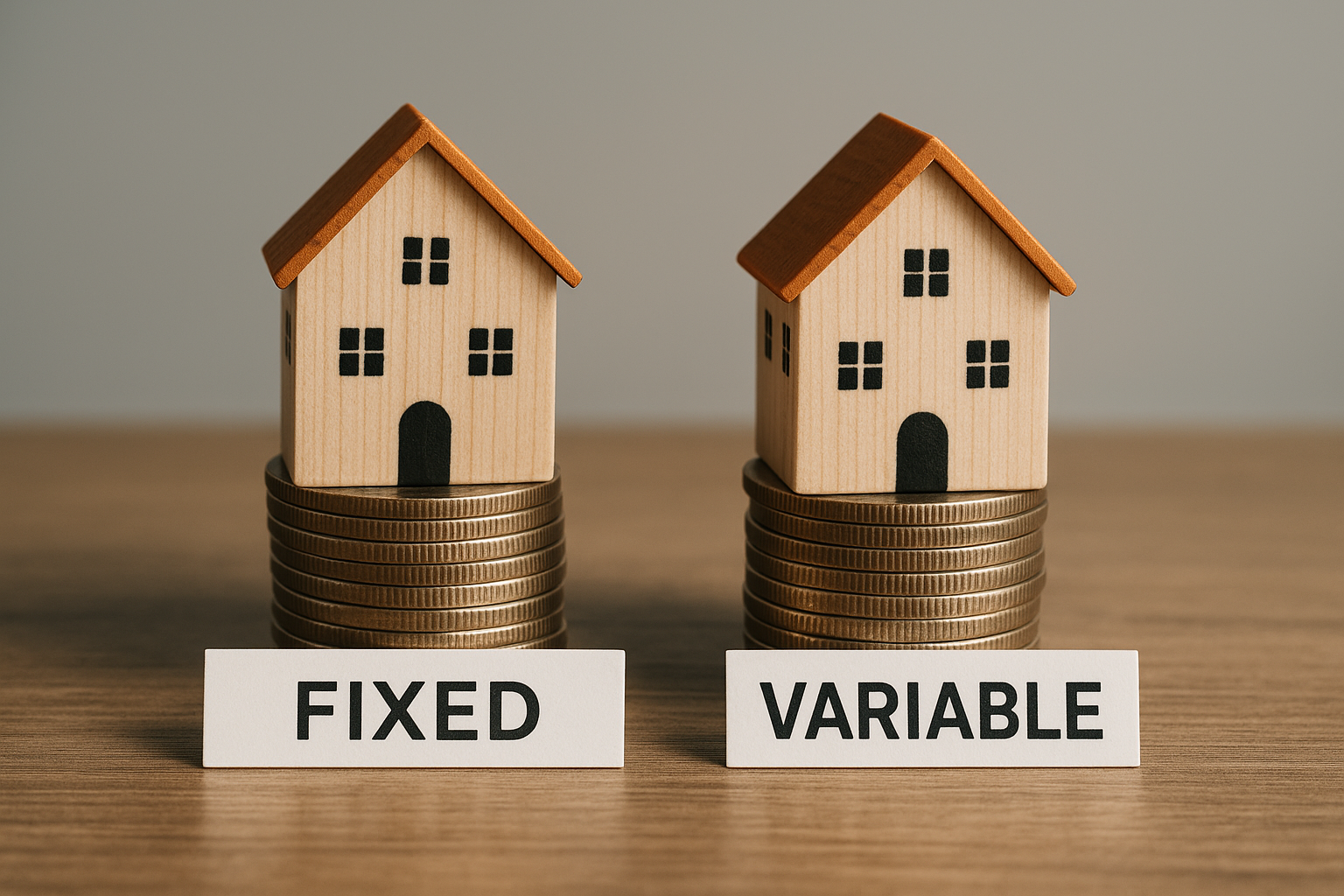Fixed vs. Variable Home Loans: Which One is Right for You?

When taking out a home loan, one of the biggest decisions you’ll face is choosing between a fixed or variable interest rate. Each option has distinct advantages and potential drawbacks, and the right choice depends on your financial situation, risk tolerance and long-term goals.
What is a Fixed-Rate Home Loan?
A fixed-rate home loan locks in your interest rate for a set period, typically between one and five years. During this time, your repayments remain unchanged, regardless of market fluctuations. This provides a sense of stability and allows for easier budgeting, making it a popular choice for first-time buyers or those who prefer financial certainty.
One of the biggest advantages of a fixed-rate loan is protection from rising interest rates. If market rates increase, your loan repayments will stay the same, ensuring you won’t be hit with unexpected costs. However, this stability comes at a price. Fixed-rate loans often start with higher interest rates compared to variable loans and they offer limited flexibility. If you want to make extra repayments, refinance or pay off your loan early, you may face break fees or restrictions. Additionally, if interest rates drop, you won’t benefit from lower repayments, as your rate is locked.
What is a Fixed-Rate Home Loan?
A variable-rate home loan, on the other hand, fluctuates based on changes in the market interest rate. This means your repayments can go up or down over time, depending on economic conditions. When interest rates fall, borrowers with variable-rate loans benefit from lower repayments, which can lead to significant savings.
Variable-rate loans also offer more flexibility. Many allow you to make extra repayments without penalty, helping you pay off your loan faster and reduce overall interest costs. Some even come with features like offset accounts and redraw facilities, which can help you save on interest while still giving you access to extra funds if needed.
However, the downside to a variable loan is uncertainty. If interest rates rise, your repayments will increase, potentially putting pressure on your finances. For this reason, variable loans are often better suited to borrowers who have a financial buffer and can handle fluctuations in their monthly expenses.
Which Option is Best for You?
The decision between a fixed and variable home loan ultimately depends on your individual circumstances:
- If you value stability and want to plan your finances with certainty, a fixed-rate loan may be the best option.
- If you’re comfortable with some level of risk and want the flexibility to make additional repayments or take advantage of falling interest rates, a variable-rate loan could be a better fit.
For some borrowers, a split loan, where part of the loan is fixed and part is variable, offers the best of both worlds. This approach provides some stability while still allowing flexibility and potential savings.
Before making a decision, it’s always a good idea to speak with one of our experts who can assess your financial goals and help you find the best loan structure for your needs.
Can't decide? Split your loan - fix part for certainty, keep part variable for flexibility.





